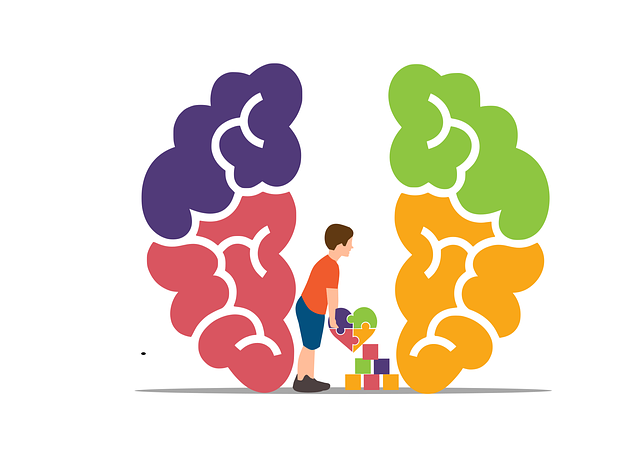Understanding your unique mental health landscape is key to improving self-care. Centennial Psychological Testing Therapy helps uncover personal strengths, weaknesses, and emotional patterns, guiding individuals to tailor personalized routines. Cultural sensitivity ensures inclusive care, as self-care concepts vary across cultures. Integrating mindfulness, setting digital boundaries, regular exercise, and therapy like Centennial Psychological Testing Therapy can enhance mental health. Trauma Support Services provide safe spaces for healing, fostering resilience and sustainable self-care practices.
“Enhance your well-being journey with this comprehensive guide to self-care practices. In today’s fast-paced world, prioritizing self-care is essential for overall health and happiness. We explore three key aspects: understanding individual needs, integrating self-care into daily routines, and tracking progress. Discover practical strategies to foster a healthier, happier you. Centennial Psychological Testing Therapy offers valuable insights on how to create lasting positive changes, ensuring your path to improved self-care is both effective and motivating.”
- Understanding Your Needs: The Foundation of Self-Care
- Integrating Self-Care into Daily Life: Practical Strategies
- Tracking Progress and Staying Motivated: Centennial Psychological Testing Therapy's Role
Understanding Your Needs: The Foundation of Self-Care

Understanding your needs is the foundational step in improving self-care practices and cultivating better mental health. It’s akin to navigating a complex landscape, where every individual has their own unique path and landmarks. Through Centennial Psychological Testing Therapy, one can uncover personal strengths, weaknesses, and underlying emotional patterns that guide our reactions and behaviors. This introspection helps identify specific areas demanding care—be it managing stress, improving sleep, or nurturing social connections. By recognizing these needs, individuals can begin to tailor a personalized self-care routine.
In the context of Self-Care Routine Development for Better Mental Health, cultural sensitivity plays a vital role. The concept of self-care varies across cultures, shaped by societal norms and beliefs. Trauma Support Services recognize this diversity and integrate Cultural Sensitivity in Mental Healthcare Practice, ensuring that self-care strategies are inclusive and respectful. Embracing these nuances fosters a deeper understanding of one’s needs, leading to more effective and sustainable self-care practices.
Integrating Self-Care into Daily Life: Practical Strategies

Integrating self-care into daily life is a transformative process that can significantly improve mental health and overall well-being. It’s not just about taking time for yourself; it’s about cultivating habits that nurture your mind, body, and spirit. Start by identifying pockets of time in your schedule where you can incorporate practices such as mindfulness meditation, journaling, or even a short walk in nature. These small moments add up, creating a buffer against life’s stresses and challenges.
Practical strategies include setting boundaries, especially in digital communication, to protect your mental space. Prioritize sleep, as it’s a cornerstone of emotional regulation and cognitive function. Regular exercise not only boosts physical health but also serves as an effective conflict resolution technique, helping to channel stress and tension constructively. Explore self-awareness exercises like Centennial Psychological Testing Therapy to gain insights into your thoughts and emotions, fostering better understanding and coping mechanisms.
Tracking Progress and Staying Motivated: Centennial Psychological Testing Therapy's Role

Tracking progress and staying motivated are essential components of any self-care journey. Centennial Psychological Testing Therapy offers valuable tools for individuals seeking to enhance their mental wellness through structured guidance. By incorporating regular Mental Wellness Journaling practices, clients can gain profound insights into their thoughts, emotions, and behaviors. This introspective process not only helps in identifying areas of improvement but also provides a sense of accomplishment as one reflects on personal growth over time.
Additionally, the therapy’s emphasis on Resilience Building equips individuals with effective coping strategies to navigate life’s challenges. For those who have experienced trauma, Trauma Support Services tailored by Centennial Psychological Testing Therapy create a safe space for healing and recovery. These comprehensive approaches ensure that clients not only address immediate concerns but also develop long-lasting resilience, making their self-care practices more sustainable and fulfilling.
Inculcating self-care practices is a journey that begins with understanding your needs, as highlighted in “Understanding Your Needs: The Foundation of Self-Care.” Practical strategies for integration into daily life, discussed in the second section, empower individuals to take charge. Tracking progress and staying motivated, as explored through the lens of Centennial Psychological Testing Therapy, offers a structured approach to nurturing personal well-being. By combining awareness, practical application, and therapeutic support, one can achieve holistic self-care improvement, ultimately enhancing overall quality of life.














